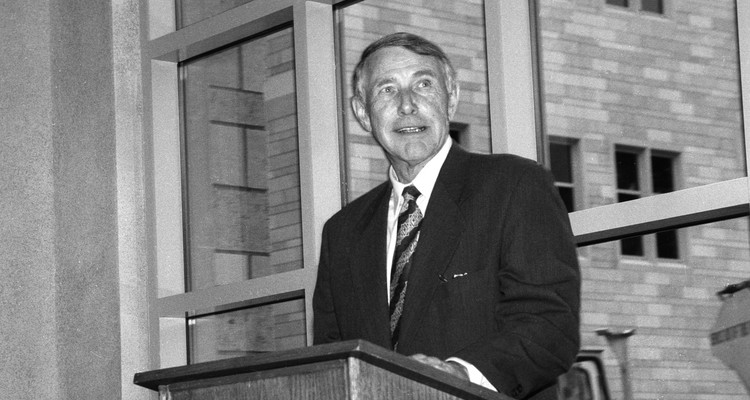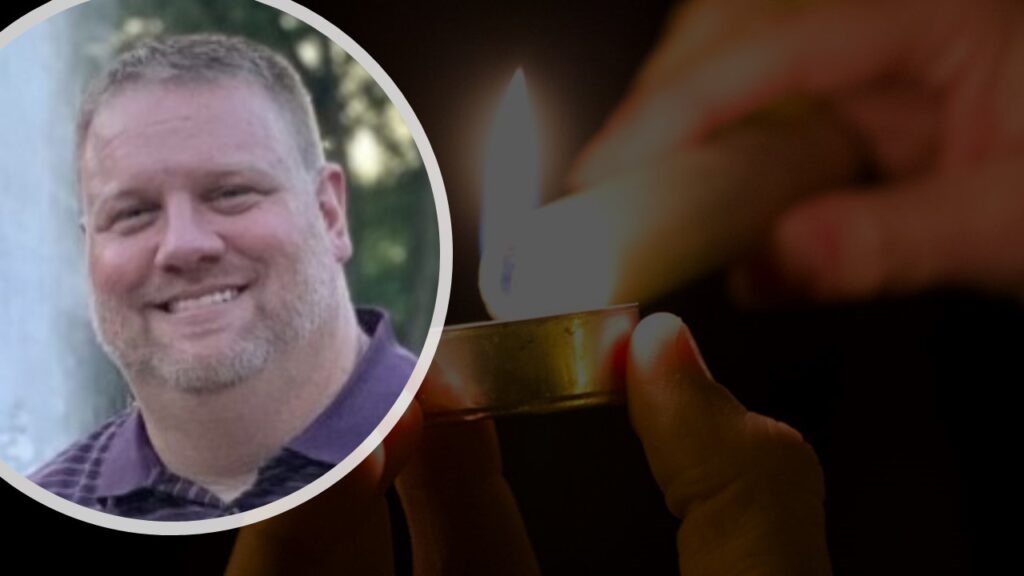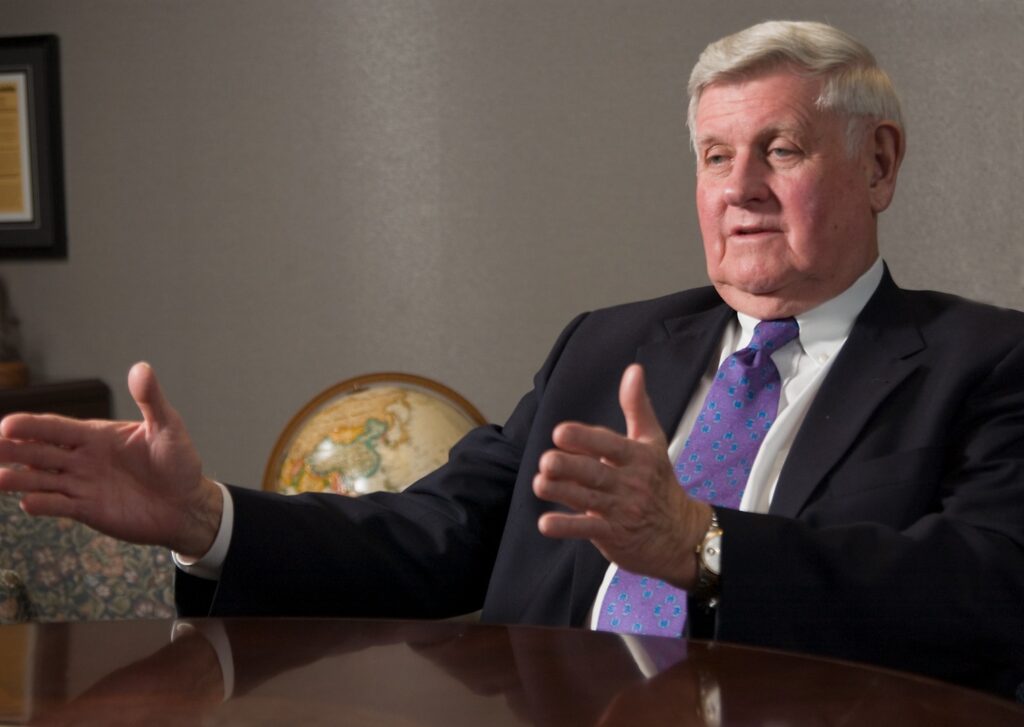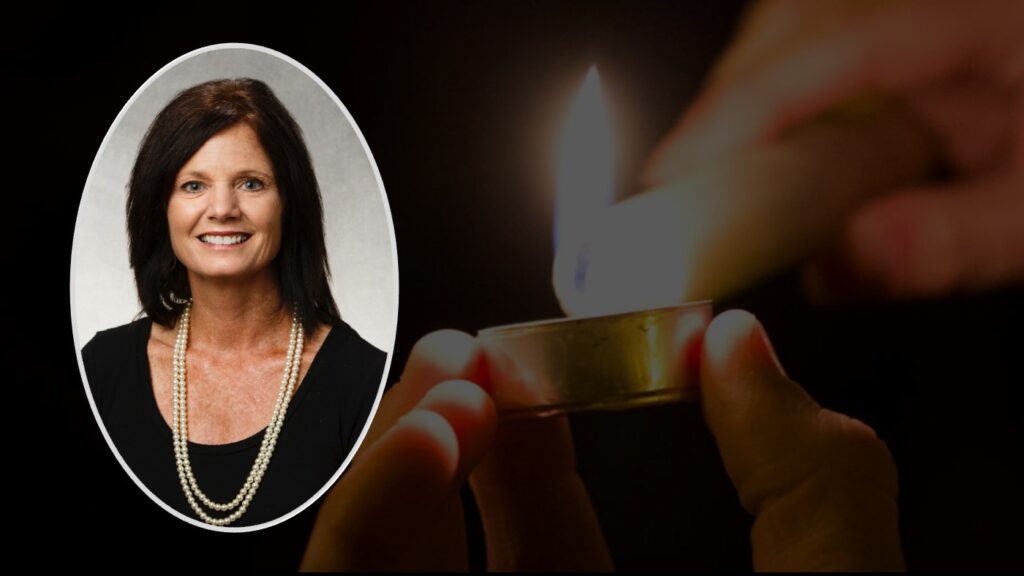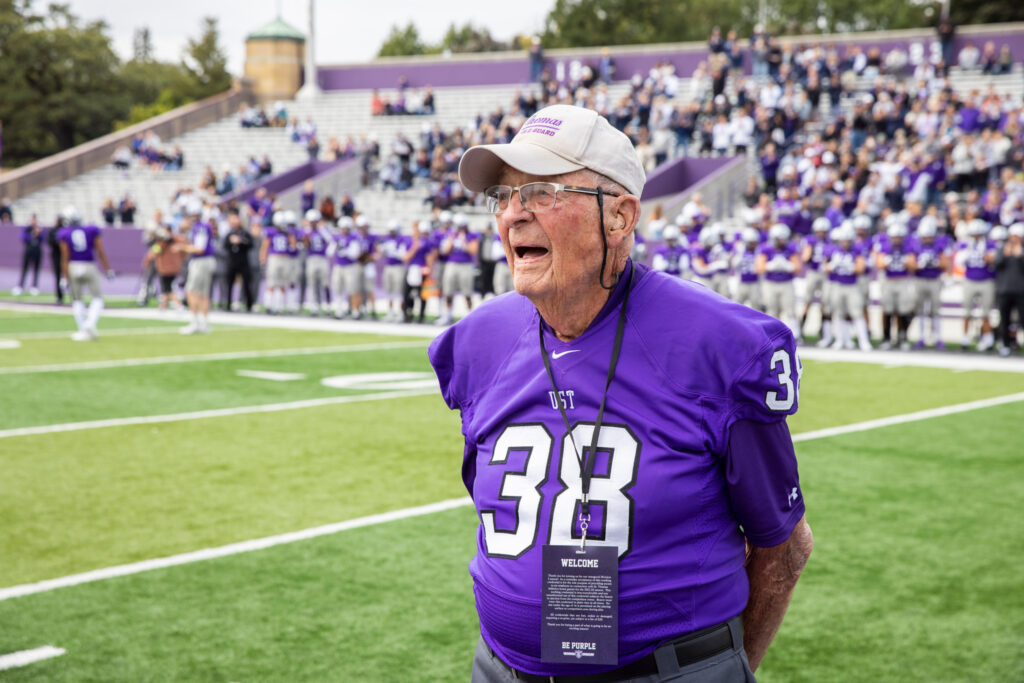Please remember in your prayers Martin Olav Sabo, a former state legislator and congressman who helped to obtain $15.5 million in federal funds for the Frey Science and Engineering Center at St. Thomas. Sabo died Sunday, Mar. 13.
Sabo, 78, was speaker of the Minnesota House of Representatives, where he served for 18 years, and then represented the Fifth District in Congress for 28 years. He retired in 2007 and returned to live in downtown Minneapolis, near the St. Thomas campus.
A quiet lawmaker who preferred to work behind the scenes, Sabo agreed in 1991 to help St. Thomas pursue federal funds for new science and engineering buildings on the St. Paul campus even though he represented the Minneapolis area in Congress.
The effort took more than three years, and the congressional appropriation paved the way for St. Thomas to embark on a more ambitious project – O’Shaughnessy and Owens halls – than originally planned. The $15.5 million was envisioned to cover half the project’s cost, which had a final price tag of $40 million.
“Martin was a true gift to the university and our science and engineering programs,” said Father Dennis Dease, then president of St. Thomas. “Those programs wouldn’t be the success they are today if not for Martin’s foresight that the buildings would be critical in helping us educate and train the next generation of scientists and engineers.”
President Julie Sullivan agreed and praised Sabo’s vision.
“He knew the importance that STEM (Science, Technology, Engineering and Mathematics) education would have in the future,” she said. “Before the Frey complex opened, we had less than 800 STEM majors on campus, and we had no mechanical, electrical or computer engineering programs. Today, we have nearly 1,600 STEM majors, with more than 600 in those three engineering programs alone."
Al Hofstede ’64, former mayor of Minneapolis and a member of the St. Thomas Board of Trustees from 1989 to 2000, said Sabo was almost singularly responsible for persuading colleagues in Congress and the Clinton administration that the earmarked appropriations were worthwhile.
“We never would have received the money without Martin,” Hofstede said. “That’s the bottom line. He was there for us every step of the way. He went way out of his way to help St. Thomas.”
Son of Norwegian immigrants
Sabo was born in Crosby, North Dakota, the son of Norwegian immigrants. He graduated from Augsburg College in 1959 with a degree in history and won election to the Minnesota House of Representatives the following year at the age of 22.
He became leader of what then was called the liberal (now DFL) caucus in the House of Representatives when he was 30, and his colleagues elected him speaker four years later. He decided in 1978 to seek election to Congress. Hofstede was mayor of Minneapolis and could have had first dibs on the seat.
“Martin called me,” Hofstede recalled, “and said, 'Al, I’d like to run for Congress.’ I told him, ‘Martin, you can have it. I’ll support you.’ ”
Sabo won the election and was re-elected to 13 more terms. As he gained seniority, he earned important positions on the Appropriations Committee. He became House Budget Committee chairman in 1993, helping President Clinton win approval of a balanced budget, and served for two years before Republicans won control of the House in 1994.
Rep. John Kasich, now running for president, succeeded Sabo as committee chairman. At the time, Kasich called Sabo “as class an act as (one) can find in public life – a man of conviction, a man of courage and a man of principle.” Kasich’s remarks on the House floor drew a standing ovation.
Sabo secured funding for hundreds of projects in Minnesota, especially those related to roads, bridges and the state’s first light-rail transit line on Hiawatha Avenue in Minneapolis.
He also fought to increase the minimum wage, fund programs such as Head Start and reduce the growing gap between rich and poor. One of his bills, which never was approved, would have limited a company’s tax deductibility on compensation paid to executives to 25 times the amount earned by its lowest-paid workers. “We can’t afford to ignore the disparity that keeps growing,” he said at the time. “We have to have the discussion about values.”
Hofstede attributed Sabo’s success to his willingness to seek bipartisan agreement on important issues. “He understood what people needed,” Hofstede said, “and he worked with people across the aisle to get things done. It was a different atmosphere than what you see today.”
Science-engineering plaza honors
St. Thomas, in recognition of his efforts to obtain federal funds for the science and engineering center, named the front plaza after Sabo. A plaque on a pillar of the passageway between the two halls states that without his efforts, “This center would not be a reality.”
The university also conferred its Distinguished Service Award on Sabo in September 1997, the month the buildings opened. Dease recalled Sabo’s sheepish agreement to accept the honor.
“He told me, when we invited him for the ceremony, that he was a little uneasy,” Dease said. “He said, ‘I’m Norwegian, and you know what they say about Norwegians: a Norwegian introvert looks at his shoes when he’s talking to you, and a Norwegian extrovert looks at your shoes.’ ”
The citation that accompanied the award noted how Sabo’s work on the St. Thomas project was similar to other efforts on other projects through his career.
“You are characterized by a matchless work ethic, an innate ability to build coalitions and a quiet but steely resolve,” the citation stated. “The media like to kid you about what your congressional biography calls ‘a certain Scandinavian reticence,’ and a columnist once suggested that you are an unlikely Don Quixote because while you are perfectly willing to fight unbeatable foes, you don’t do so ‘with a whole lot of flash or gusto.’ ”
After retirement in 2007, Sabo found more time to follow his passions for Minnesota Twins baseball and sports at his alma mater. He regularly attended St. Thomas-Augsburg basketball, football and baseball games.
(This writer, who worked with Dease on the federal funding project, always sought out Sabo at games and sat with him during part of the Jan. 11 men’s basketball game between the Auggies and the Tommies in Schoenecker Arena. “Good game,” Sabo said at halftime, when St. Thomas led 41-38. “I hope we can hang in with you.” The Tommies won 88-77, but Sabo had the last laugh, when Augsburg won the rematch 98-89 last month.)
